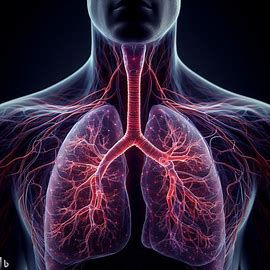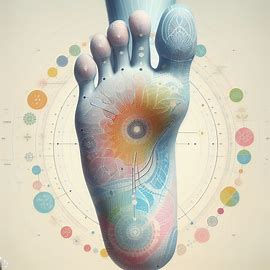Integrating Complementary Therapies into NHS Care: Enhancing Patient Wellbeing
- Jerry’s Garden
- Nov 27, 2023
- 4 min read

NHS’s Recognition of the Value of Complementary Therapies in Holistic Patient Care:
The NHS acknowledges the significance of a holistic approach to healthcare, understanding that well-being encompasses more than just physical health. Complementary therapies offer avenues to address emotional, mental, and spiritual aspects of health, aligning with the NHS’s goal of comprehensive patient care.
These therapies are recognized for their ability to complement conventional medicine by filling gaps in treatment, enhancing overall wellness, and offering alternative methods to manage symptoms or improve quality of life. The NHS recognizes that combining conventional treatments with complementary therapies can lead to more effective outcomes, particularly in chronic conditions, by addressing the broader spectrum of patient needs.
Overview of the NHS’s Strategy to Incorporate Complementary Therapies:
The NHS has adopted a strategic approach to integrate complementary therapies into its healthcare framework. This includes several key initiatives:
1. Guidelines and Standards: The NHS has established guidelines and standards for the incorporation of complementary therapies, ensuring that these treatments are evidence-based, safe, and delivered by qualified practitioners. This maintains consistency and quality across NHS facilities offering such therapies.
2. Training and Education: There’s an emphasis on training healthcare professionals in understanding and incorporating complementary therapies into patient care plans. This not only ensures competence but also promotes interdisciplinary collaboration between conventional medical practitioners and complementary therapists.
3. Accessible Services: The NHS strives to make complementary therapies more accessible to patients, whether through designated clinics within NHS facilities or referrals to external practitioners and centres with NHS approval.
4. Research and Evaluation: Continuous research and evaluation are conducted to assess the effectiveness, safety, and cost-efficiency of integrating complementary therapies. This evidence-based approach helps in making informed decisions about the therapies offered within NHS care.
By incorporating these strategies, the NHS aims to provide patients with a more diverse range of treatment options, emphasizing personalized care and considering individual preferences and needs. This approach aligns with the NHS’s overarching goal of offering patient-centered, integrated healthcare services.

Specific Complementary Therapies Available within the NHS:
1. Acupuncture: NHS-approved clinics and hospitals offer acupuncture as a complementary therapy. This involves the insertion of thin needles into specific points on the body to alleviate pain, manage various conditions such as migraines, chronic pain, or even aid in relaxation.
2. Mindfulness-Based Stress Reduction (MBSR): Several NHS programs and centers provide mindfulness courses and workshops. MBSR techniques, including meditation, breathing exercises, and mindfulness practices, are offered to help manage stress, anxiety, depression, and improve overall mental well-being.
3. Yoga: Within NHS facilities or recommended centers, yoga classes or therapy sessions are available. Yoga offers physical postures, breathing exercises, and meditation to promote flexibility, strength, relaxation, and stress reduction. It’s often used to complement conventional treatment for various conditions like chronic pain, mental health issues, and hypertension.
4. Aromatherapy: Some NHS-approved centers or hospitals offer aromatherapy as part of complementary care. This involves the use of essential oils derived from plants to promote relaxation, manage stress, improve mood, and alleviate certain symptoms like nausea or pain.
5. Massage Therapy: NHS facilities may provide massage therapy services as a complementary treatment option. Massage techniques, including Swedish massage, deep tissue massage, or sports massage, are used to relax muscles, reduce tension, and manage pain associated with various musculoskeletal conditions.
These therapies, when integrated into NHS care, provide patients with a more holistic approach to managing their health conditions and promoting overall well-being. They offer additional choices beyond traditional medical treatments, allowing patients to explore options that resonate with their preferences and needs.
Some of the hospitals run a support program for people with cancer. All hospitals use only qualified complementary therapists.

Benefits of Integrating Complementary Therapies
• Detailed exploration of the advantages for patients, including improved pain management, reduced stress and anxiety, enhanced overall well-being, and quicker recovery in some cases
• References to studies or reports supporting the efficacy of complementary therapies in combination with standard medical treatments.
Challenges and Future Prospects:
Integrating complementary therapies into mainstream healthcare poses several challenges.
Despite these challenges, there is growing interest in the integration of CAM into mainstream healthcare.
These hospitals provide a range of complementary therapies. Some of the hospitals run a support program for people with cancer. All hospitals use only qualified complementary therapists.
In the future, it is likely that the NHS will continue to expand its use of CAM treatments. However, this expansion will depend on the availability of scientific evidence supporting the efficacy of these treatments, as well as the development of standardized training and certification programs for CAM practitioners.
This article aims to shed light on the NHS’s evolving approach to healthcare by incorporating complementary therapies, showcasing its benefits, and providing resources for individuals seeking these services within the NHS.
Become certified Complementary Therapist:
Hair and beauty Academy (Doncaster branch)
7 Thorne Road, DN1 2HJ
Contact: Leanne Timms - leanne.timms@learningcurvegroup.co.uk
Courses available: L3 Complementary Therapies, L3 Reflexology
- funding available
- VTCT qualification
- Aromatherapy, Reflexology, Body Massage.
Thank you for reading.




